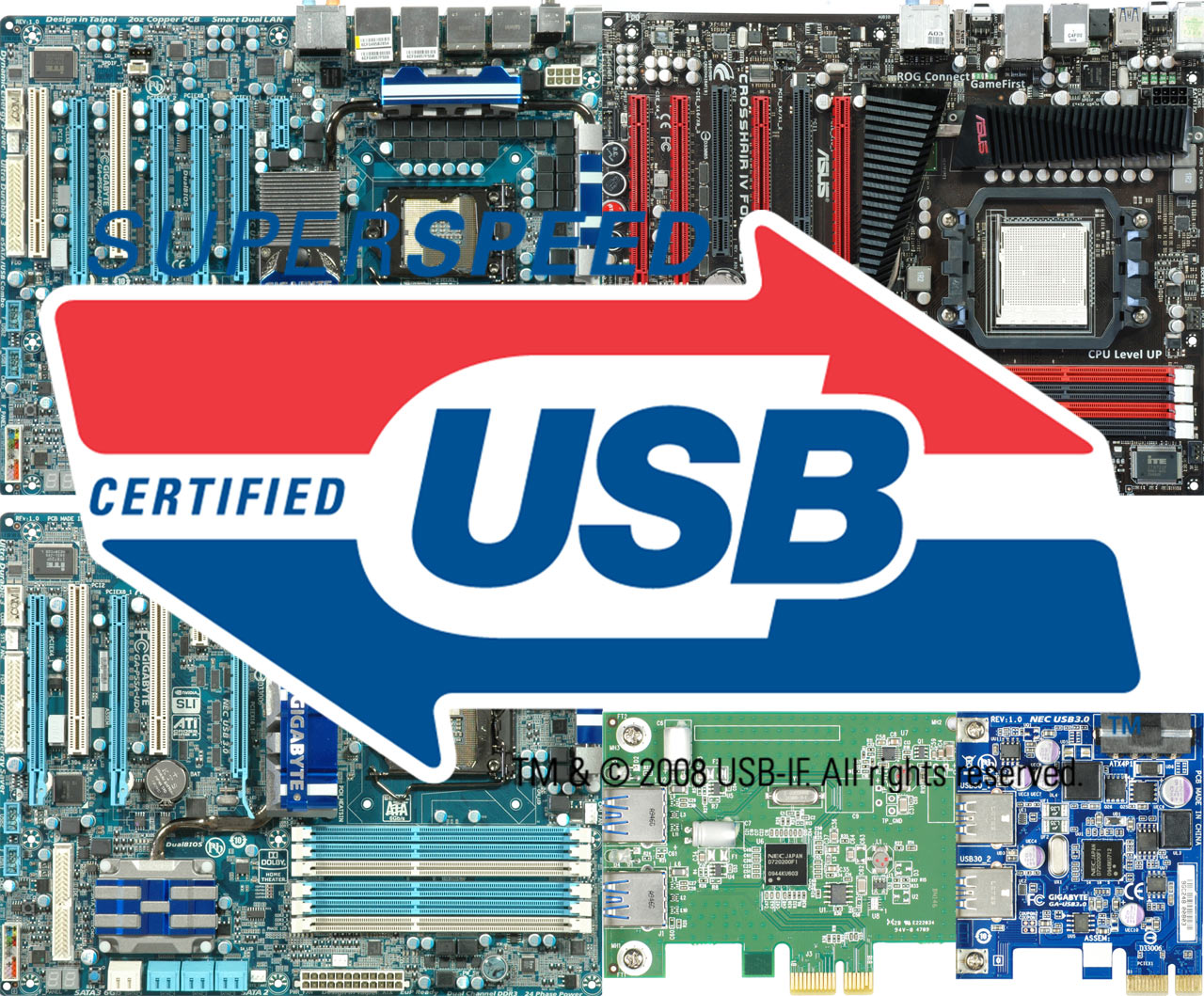Not All USB 3.0 Implementations Are Created Equal
Despite the fact that today's USB 3.0 products center on the same NEC controller, we compared a handful of different USB 3.0 drives and found performance to range from 113 to 173 MB/s, depending on the implementation used. Should you be worried?
USB 3.0 Controller Performance Varies
You might think that the performance of one USB 3.0-equipped product would be (or at least should be) the same as another. If so, you'd be wrong. We found that five different components, all based on the NEC controller, deliver different performance.
USB 3.0 remains a difficult topic. While the benefits are undisputed—it's up to 10x faster than USB 2.0, not necessarily more expensive in volume quantities, and backward compatible with earlier USB versions—it will still take a while for USB 3.0 to go mainstream. We've already looked at USB 3.0 thumb drives, USB 3.0 enclosures for 2.5” hard drives, various motherboard implementations that support USB 3.0, and a few USB 3.0 external storage solutions. As expected, hard drives (particularly SSDs) can now operate without bottlenecks, and the infrastructure is ready for throughput of 300 to 400 MB/s.
Intel Hesitating
One of the key market forces won’t implement a USB 3.0 controller into its next chipset generation. The successor to the P55 family is code-named Cougar Point (P67), and it supports a slightly modified socket format: LGA 1155, which uses one pin less than today's LGA 1156 and hence is incompatible. Cougar Point will support 14 USB 2.0 ports, but it lacks SuperSpeed USB 3.0 support.
While this decision is a mystery to many users, it does make economic sense. Intel had problems with its USB 1.1 implementation in the late '90s, and so waited until the ICH4 in 2002 to implement USB 2.0. Since the introduction of USB 3.0 root controllers represents a significant design change and the market is not going to switch from USB 2.0 to 3.0 in only a few months, Intel is playing a conservative game this time around, even though most of us would prefer a more aggressive strategy.
New Controllers Coming
There are a few more companies working on USB 3.0 controller designs, namely ASMedia (Asus), Texas Instruments, and VIA. We believe that all three will hit the market before the end of the year, and we hope that the different implementations will enable more cost competition in this space. Right now, NEC is the only supplier, and without any competition, NEC is keeping the controller cost too high for mainstream adoption. As a result, lower-cost motherboards will not be equipped with USB 3.0 hardware anytime soon.
Get Tom's Hardware's best news and in-depth reviews, straight to your inbox.
Options?
Today, you have two options for jumping on the USB 3.0 bandwagon: either get a motherboard that includes a USB 3.0 controller with two ports, or look for an add-on card that utilizes the same NEC PD720200. There are also ExpressCard products for notebooks based on NEC's chip. Keep in mind that all implementations require x1 PCI Express slots, per the PCI Express 2.0 specification. This means that high-speed USB 3.0 solutions can actually be bottlenecked if the controllers/cards run in PCIe 1.1 slots, which are limited to 250 MB/s upstream and downstream. This applies to all Intel platforms in which additional PCIe connectivity is operated through the southbridge and to all older PCI Express systems. While we don’t see bottleneck issues coming into play today, this is something to keep in mind for future products.
Current page: USB 3.0 Controller Performance Varies
Next Page Asus Crosshair IV Formula (NEC PD720200)